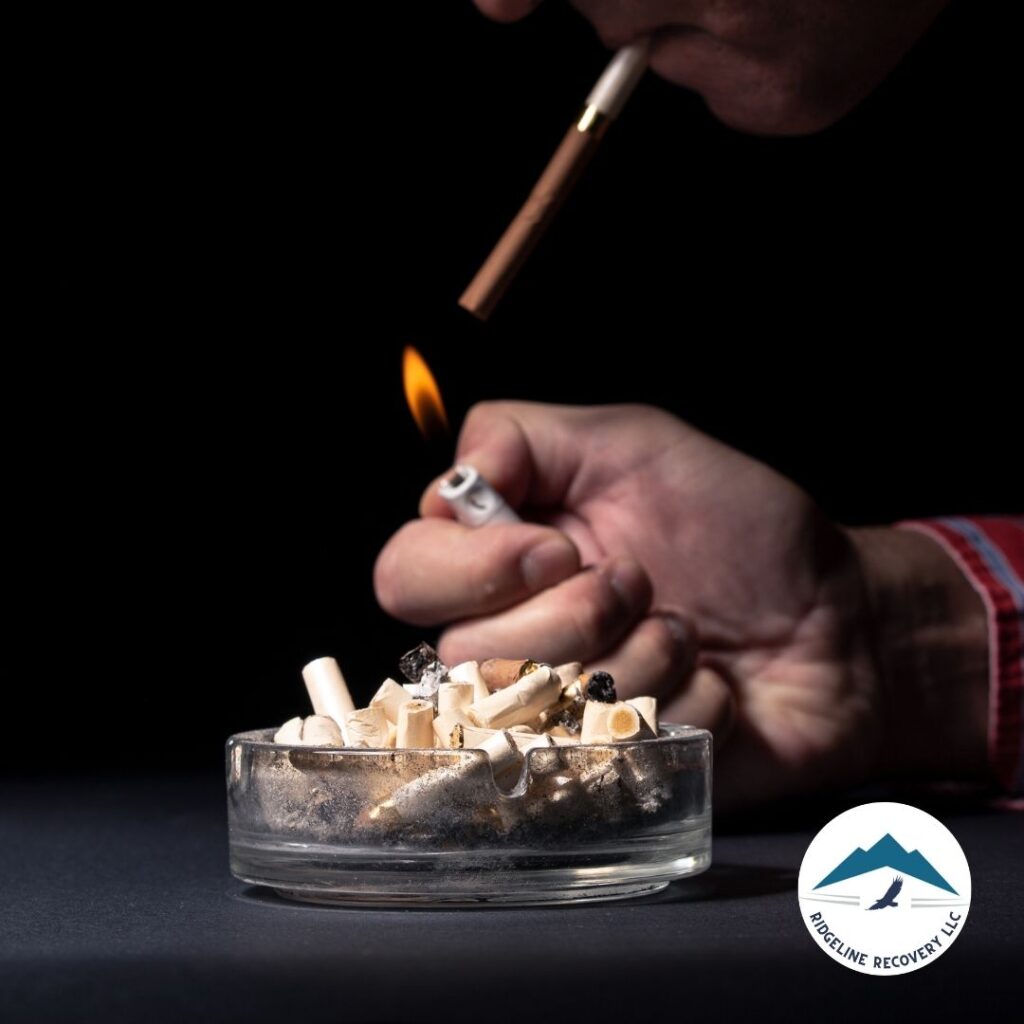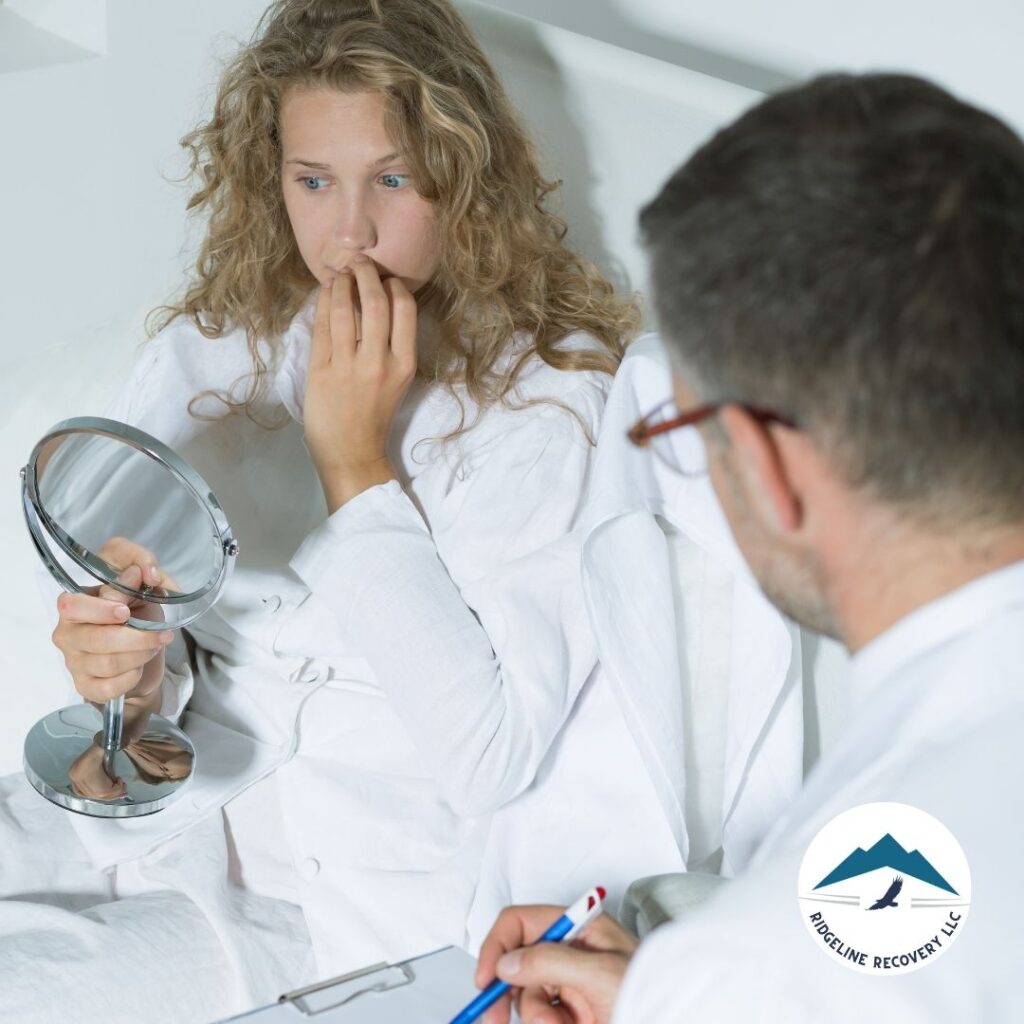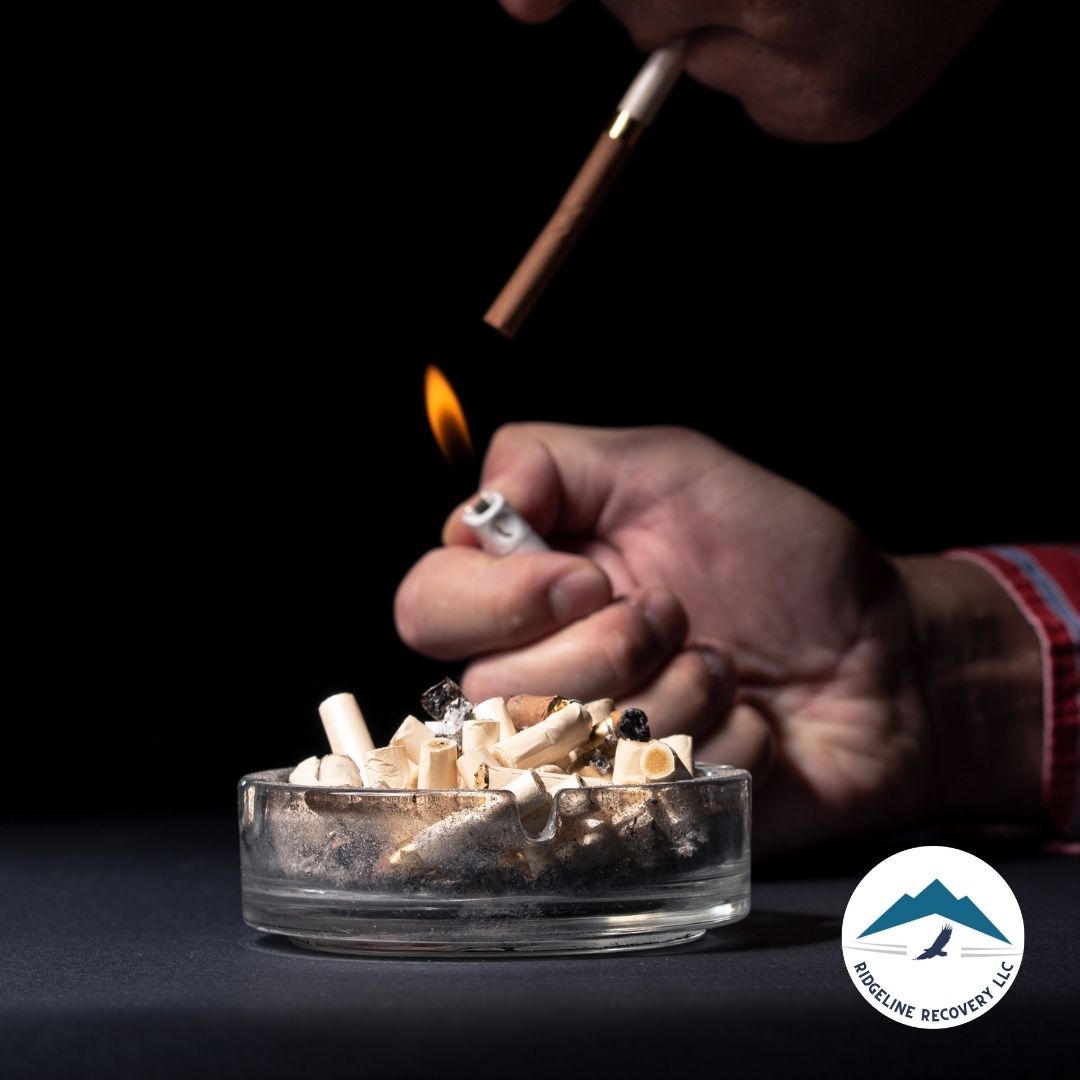Are You Ready to Get Off the Hamster Wheel of Addiction?
Addiction Therapy Services? Let’s be real.
If you’re here, you or someone you know is stuck.
You’re probably exhausted, frustrated, maybe even feeling defeated after trying and failing to stay clean.
Look, addiction isn’t just about “willpower.” It’s not about being “stronger” or just “cutting back.”
It’s about having the right tools, a solid support system, and strategies that actually work.
This article is going to cover the ins and outs of effective Addiction Therapy Services, especially for those looking for something comprehensive, something that actually leads to lasting recovery.
You need real solutions, right?
I’m talking practical, no-BS solutions that will help you or your loved one break free from addiction in a way that sticks.
We’re going to go over everything you need to know about getting help in Ohio, from Addiction Therapy Services to specialized mental health treatment centers near me.
No fluff, just a deep dive into what works, why it works, and how you can get started.
What You Really Need to Break Free
First off, let’s get one thing straight: Recovery is not a “one-size-fits-all” deal.
Different people have different struggles, and that’s why Addiction Therapy Services in Ohio offer so many different options.
Maybe you need inpatient treatment for substance abuse.
Maybe it’s an outpatient program.
Or maybe you need a Vivitrol clinic near you to help manage cravings.
Whatever it is, the right program can make all the difference.
And here’s why:
Most people relapse not because they want to, but because they’re using the wrong approach for their specific needs.
In Ohio, you’ve got options – solid, practical options that can support a lasting recovery.
Here’s what we’ll cover in this guide:
- Types of Addiction Therapy Services available in Ohio
- Mental Health Services and why they’re crucial to recovery
- How to choose the best addiction treatment centers near me
- Specific services like Vivitrol clinics, adventure therapy, and sobriety support
- A full breakdown of what Addiction Therapy Services actually entail
Let’s dive in.
Types of Addiction Therapy Services: Choosing What’s Right for You
Inpatient vs. Outpatient Addiction Therapy Services
Inpatient Treatment: You live at the facility and get round-the-clock care.
Ideal for those who’ve tried other methods and need to hit “reset” on life.
Outpatient Treatment: You get therapy but still live at home.
Perfect if you need flexibility or have family commitments.
Now, let’s be clear – both options work, but you have to be real about what’s best for you.
If you’ve tried outpatient and it didn’t stick, maybe it’s time to give inpatient a shot.
Vivitrol Clinics Near Me: Tackling Cravings with Medical Support
Vivitrol is a big name in the game of recovery.
Why? Because it helps stop cravings in their tracks.
But let’s set expectations: Vivitrol alone isn’t a “magic cure.”
It’s a tool – and a damn good one – but it works best when paired with solid Addiction Therapy Services.
Adventure Therapy and Alternative Methods
Sometimes, talk therapy alone isn’t enough.
If you’re dealing with some heavy trauma or just need a new approach, alternative therapies like adventure therapy for treatment of substance use disorder might be the answer.
Adventure therapy pushes you, helps you rebuild confidence, and gives you that sense of accomplishment you might not get in a traditional setting.
Think rock climbing, hiking, outdoor challenges.
Why Mental Health Services Are the Secret Weapon in Recovery
Here’s a tough truth: Addiction is almost always tied to mental health.
Maybe it’s depression, anxiety, or trauma.
Whatever it is, untreated mental health issues can make recovery almost impossible.
And it makes sense – if you’re constantly battling your mind, how can you focus on sobriety?
Mental Health Therapists Near Me: The Role of Professional Support
A mental health therapist isn’t just there to talk about feelings.
They help you dig deep, figure out what’s driving your addiction, and give you strategies to handle life without substances.
Think of them as a teammate in your recovery journey.

Breaking Down the Most Effective Addiction Therapy Services in Ohio
Cognitive Behavioral Therapy (CBT): Changing How You Think and Act
CBT is all about rewiring your thought process.
Addiction thrives on automatic, negative thought patterns – “I need this to feel okay” or “I’m a failure if I mess up.”
CBT helps you see these thoughts for what they are: Lies.
And then it gives you tools to shut them down.
How CBT Works in Recovery:
- Identifies the thoughts that trigger cravings
- Helps you see the consequences of relapse, right when it matters
- Builds coping strategies for real-life situations
Dual Diagnosis Treatment: Addressing Addiction and Mental Health Together
Dual diagnosis is a game-changer.
If you’re dealing with both addiction and mental health issues (like anxiety or depression), treating one without the other is like bailing water out of a sinking boat.
With dual diagnosis, you get therapy for both issues at the same time.
This comprehensive approach helps you build a stable foundation for recovery.
Adventure Therapy: Going Beyond Traditional Rehab
Adventure therapy doesn’t just give you a physical challenge; it gives you mental and emotional challenges too.
And it’s powerful because addiction often strips people of confidence, and adventure therapy can help rebuild it.
Imagine climbing a rock wall or hiking a mountain – each step forward is proof that you’re stronger than your addiction.
Case Management and Social Support: The Unseen Pillars of Recovery
Getting clean is one thing, staying clean is another.
Case management can help connect you to resources like housing, job training, and sober living environments.
Practical Tips for Lasting Sobriety
- Set Boundaries: Remove people or places that trigger you.
- Stay Busy: Boredom is dangerous in recovery. Fill your schedule with positive, meaningful activities.
- Keep a Sober Support Network: Sobriety rocks movement, sober houses – find your tribe.
The Road to Recovery: How Addiction Therapy Services Can Support You Long-Term
When it comes to addiction recovery, a one-size-fits-all approach rarely works.
That’s why Addiction Therapy Services are crucial in providing the personalized care needed to tackle addiction from every angle.
Recovery isn’t just about quitting drugs or alcohol.
It’s about rebuilding your life, your relationships, and your mental health.
Addiction Therapy Services offer the flexibility to design a treatment plan that fits your unique needs, whether that’s through inpatient rehab, outpatient counseling, or mental health services.
The best way to sustain recovery is through an integrated approach that takes care of your physical, emotional, and psychological well-being.
Let’s break down how to use Addiction Therapy Services to create lasting change.
Key Aspects of Addiction Therapy Services That Make a Real Difference
Addressing the Root Causes: Why Therapy Works
Addiction doesn’t happen in a vacuum.
It’s often tied to underlying issues like trauma, mental health disorders, or negative life experiences.
Here’s where therapy makes a significant difference.
It helps you uncover those root causes and provides tools to address them.
Whether it’s through Cognitive Behavioral Therapy (CBT), dialectical behavior therapy (DBT), or trauma-focused therapy, the goal is to help you recognize negative thought patterns, learn new coping strategies, and develop healthy emotional responses.
Mental Health Therapy: More Than Just Talk
Let’s not sugarcoat it: addiction and mental health go hand in hand.
Mental health issues are often a driving force behind addiction, whether it’s anxiety, depression, or trauma.
That’s why mental health therapy is a vital part of any comprehensive recovery plan.
When you take care of both, addiction doesn’t stand a chance.
Mental health services work to improve emotional regulation, teach stress management skills, and help you understand the link between mental health and addiction.
Without addressing both, you’re essentially building a house on sand – it may stand for a while, but it will eventually crumble.
Inpatient Rehab vs. Outpatient Services: Which One Is Right for You?
Choosing between inpatient rehab and outpatient treatment can be challenging, especially if you’re unsure what you need.
Both have their merits, and the decision should be based on your individual needs and current situation.
- Inpatient Treatment: If you’re struggling with a severe addiction or co-occurring mental health disorder, inpatient rehab is often the best option. It offers 24/7 care and removes you from the triggers of everyday life.
- Outpatient Services: If you have a strong support system and can manage recovery on your own, outpatient services may be the better fit. Outpatient programs allow you to live at home while attending therapy, offering more flexibility.
The key is to honestly assess your needs and choose the program that gives you the best chance for success.
Specialized Addiction Therapy Services: What They Are and Why They Matter
Not all addiction treatment centers are created equal.
Some may focus on the basics, while others offer specialized programs that target specific aspects of recovery.
The more specialized the therapy, the more likely it is to provide lasting results.
Adventure Therapy: Reconnecting to Yourself
If traditional therapy hasn’t clicked for you, maybe it’s time to consider adventure therapy for treatment of substance use disorder.
This therapy combines the therapeutic benefits of nature with the mental and emotional challenges of addiction recovery.
What makes it work?
It pushes you outside of your comfort zone, helping you confront your addiction in a hands-on way. Whether it’s through outdoor challenges like rock climbing, hiking, or kayaking, adventure therapy helps build confidence, trust, and resilience.
Not only does it help with physical well-being, but it also provides an emotional reset. After all, recovery is not just about getting clean – it’s about rebuilding yourself from the ground up.
Family Therapy: Healing Together
Addiction doesn’t just affect the individual – it impacts the entire family.
That’s why family therapy is an essential part of many Addiction Therapy Services.
Family therapy addresses the dynamics that may contribute to addiction, helping loved ones understand the impact of addiction and develop healthier ways to cope.
It’s a space where families can heal together, learn about addiction, and rebuild broken relationships. By involving family members in the recovery process, you increase the likelihood of long-term success.
The support of family can be a game-changer when it comes to staying sober.
Vivitrol: Using Medication to Support Recovery
One of the most powerful medications in addiction treatment is Vivitrol.
This non-addictive medication blocks the euphoric effects of opioids and alcohol, helping to curb cravings and prevent relapse.
But here’s the thing: It works best when combined with Addiction Therapy Services.
Vivitrol doesn’t cure addiction, but it makes it easier to stay sober while you’re in treatment.
For people struggling with severe opioid addiction or alcohol dependency, Vivitrol clinics near me offer a medically-assisted way to manage cravings and focus on recovery without constantly battling urges to use.
The Role of Sober Living: Support After Rehab
Sober living houses are a critical component of many treatment plans.
After completing inpatient addiction rehab, you may not be ready to jump back into the same environment that contributed to your addiction.
That’s where sober houses come in.
They provide a safe, structured environment where you can continue working on your recovery while transitioning back to everyday life.
Living in a sober house gives you the space to stay sober and focused on your goals.
How to Find the Best Addiction Therapy Services Near You
Now that you know what’s available, let’s talk about how to find the right Addiction Therapy Services for you.
Start by Researching Addiction Recovery Centers
One of the best ways to find the right treatment program is to start with Addiction Treatment Centers near you.
Look for facilities that offer personalized care and specialize in addiction therapy and mental health services.
- Check if they provide both inpatient and outpatient programs.
- Look for options that include therapy for both addiction and mental health.
- Read reviews and ask for recommendations from others who have been through treatment.
Ask About Specialized Programs
If you’ve tried traditional treatment before and didn’t see results, ask about specialized programs like adventure therapy or Vivitrol clinics.
Some centers even offer case management services to help you transition back into everyday life with support.
Assess the Facility’s Track Record
Check how long the facility has been in business and look for evidence of successful recovery stories.
Facilities with a high success rate in helping individuals stay sober for the long term are worth considering.
What Does Comprehensive Addiction Therapy Services Look Like in Practice?
It’s easy to talk about recovery in theory, but what does it look like in practice?
When you go into a comprehensive treatment program, here’s what you can expect:
Step 1: Initial Assessment
Your recovery journey starts with an assessment.
This helps treatment providers understand your addiction, mental health needs, and any co-occurring disorders. Based on this, they’ll design a personalized treatment plan.
Step 2: Detox (If Needed)
If you’re coming off drugs or alcohol, detoxification may be required.
This process allows your body to rid itself of substances while managing withdrawal symptoms safely.
Detox is typically done under medical supervision, especially if you’re dealing with severe withdrawal symptoms like delirium tremens or Xanax alcohol interactions.
Step 3: Therapy and Treatment
Next comes the hard but rewarding work of therapy.
You’ll work with counselors, therapists, and medical professionals to address the psychological and emotional causes of your addiction.
This might include CBT, DBT, family therapy, or any number of approaches that help you build a life without substances.
Step 4: Support and Aftercare
Recovery doesn’t stop once you leave a treatment facility.
That’s why most comprehensive programs include aftercare services, like sober living houses, 12-step programs, and continuing therapy.
Support groups and mental health services near me play an important role in ensuring you stay sober.
How Addiction Therapy Services Help Rebuild Lives After Substance Abuse
Addiction is often described as a chronic condition, one that doesn’t simply go away with detox or a short stint in rehab. It’s a long journey that requires dedication, patience, and, most importantly, the right Addiction Therapy Services to support recovery.
The process of addiction recovery is multifaceted.
While detox is a necessary first step, the real work comes in understanding the mental, emotional, and behavioral triggers behind addiction.
This is where Addiction Therapy Services play an essential role.
With the right therapeutic intervention, individuals can address the root causes of their addiction, manage cravings, and develop coping mechanisms that help them lead healthy, sober lives.
The Key Components of Addiction Therapy Services
Understanding what Addiction Therapy Services entail is crucial for anyone embarking on the recovery journey. These services are tailored to the individual and often involve a combination of individual therapy, group therapy, and family therapy, along with the integration of mental health services.
Here’s a breakdown of the key components of Addiction Therapy Services that make them effective in treating addiction.
1. Individual Therapy: Personalized Healing
Individual therapy is the cornerstone of addiction treatment.
During one-on-one sessions with a therapist, you’ll have the opportunity to address personal issues, explore the psychological roots of addiction, and work on strategies for overcoming destructive behaviors.
Cognitive Behavioral Therapy (CBT) and Dialectical Behavior Therapy (DBT) are two of the most commonly used forms of therapy in addiction treatment. These therapies help individuals understand their thought patterns, manage negative emotions, and implement healthier coping strategies.
Through individual therapy, clients can focus on their unique challenges, which allows therapists to create a treatment plan tailored to their specific needs. Whether addiction stems from trauma, mental health disorders, or family dynamics, Addiction Therapy Services work to address the underlying issues.
2. Group Therapy: Support and Shared Healing
While individual therapy addresses personal concerns, group therapy creates a sense of community and shared experience.
In group therapy, individuals come together to share their struggles, progress, and insights. This shared healing helps people realize they are not alone in their struggles.
Group therapy is often structured around a theme, such as relapse prevention, anger management, or stress reduction. Many people find that hearing others’ stories helps them gain new perspectives, challenge negative thinking, and feel a sense of hope for the future.
The collective support found in group therapy is crucial for long-term recovery. It builds trust, encourages accountability, and strengthens emotional bonds between individuals who share common goals.
3. Family Therapy: Strengthening Support Networks
Addiction affects not only the individual but also the entire family system.
As a result, family therapy has become a vital component of Addiction Therapy Services. In family therapy, all members of the household are encouraged to participate in the treatment process.
Family therapy helps family members understand the nature of addiction, how it affects relationships, and how to rebuild trust and communication.
It creates a safe environment where issues such as codependency, enabling behaviors, and family conflict can be addressed.
Involving family members in therapy allows them to be better equipped to support their loved one’s recovery journey, ultimately leading to healthier and more supportive relationships. Family members also gain insight into their own role in the recovery process, creating a foundation for long-lasting healing.
4. Mental Health Services: Treating Co-occurring Disorders
An essential aspect of many addiction treatment programs is the recognition that mental health disorders often coexist with substance use disorders.
Co-occurring disorders are common, and addressing both the addiction and the mental health issue simultaneously is critical for achieving lasting recovery.
Addiction Therapy Services include comprehensive mental health treatment that focuses on conditions like depression, anxiety, bipolar disorder, post-traumatic stress disorder (PTSD), and more.
Therapies like trauma-informed care can help individuals process past traumas, while other techniques such as EMDR (Eye Movement Desensitization and Reprocessing) can assist in healing emotional wounds that fuel addiction.
By combining mental health services with addiction therapy, individuals can heal holistically, leading to greater success in overcoming both substance use and mental health challenges.
The Role of Medication-Assisted Treatment (MAT) in Addiction Therapy Services
While therapy forms the foundation of addiction recovery, medication can provide the necessary support to manage cravings and withdrawal symptoms.
This approach, known as Medication-Assisted Treatment (MAT), uses FDA-approved medications alongside counseling to treat opioid and alcohol dependence.
MAT can be an essential component of Addiction Therapy Services, particularly for individuals who have struggled with severe addiction and are at risk of relapse.
Medications like methadone, buprenorphine, naltrexone, and suboxone help reduce the physical cravings and discomfort of withdrawal, allowing individuals to focus on their emotional and psychological recovery.
MAT is not a standalone solution – it’s most effective when used in conjunction with therapy, support groups, and long-term aftercare.
Types of Addiction Therapy Services Available in Columbus, Ohio

Columbus, Ohio, offers a wide array of addiction treatment services to cater to individuals with varying needs and backgrounds.
Whether you’re seeking traditional therapy, holistic approaches, or specialized addiction treatment for substances like alcohol, heroin, or ecstasy, Addiction Therapy Services in Columbus can help.
Let’s explore the different types of services that are available in Columbus to support your recovery.
1. Inpatient Rehab Programs
For individuals with severe addiction or those who require intensive support, inpatient rehab programs are an excellent option.
These programs provide 24/7 care in a controlled, safe environment, where patients can focus entirely on their recovery without the distractions of the outside world.
Inpatient treatment includes a combination of detoxification, therapy, group sessions, and other Addiction Therapy Services designed to support long-term sobriety.
2. Outpatient Treatment Programs
The Outpatient treatment is ideal for individuals who have a stable home environment and support system but need ongoing therapy and counseling.
Outpatient programs allow individuals to live at home while attending therapy sessions during the day or week.
Addiction Therapy Services offered in outpatient programs can be tailored to meet specific needs, including individual counseling, group therapy, and family counseling. These programs offer flexibility while still providing necessary treatment and support.
3. Partial Hospitalization Programs (PHP)
Partial hospitalization programs are a step down from inpatient treatment but more intensive than traditional outpatient services.
PHPs provide the structure and support needed for individuals transitioning out of inpatient care while still offering flexibility. These programs often involve intensive therapy, medical supervision, and access to Addiction Therapy Services throughout the day.
4. Sober Living Homes
For those who have completed an inpatient rehab program, sober living homes provide a transitional environment that supports continued sobriety.
These homes offer a safe, drug- and alcohol-free space where individuals can live while continuing their recovery journey.
Sober living homes provide a supportive community and access to therapy, meetings, and other resources that help individuals stay sober and reintegrate into society.
How to Choose the Right Addiction Therapy Services in Columbus
Finding the right Addiction Therapy Services in Columbus is essential for your recovery.
Here are some important factors to consider when choosing a treatment program:
1. Accreditation and Licensing
It’s important to ensure that the treatment center is accredited by recognized organizations such as the Commission on Accreditation of Rehabilitation Facilities (CARF) or The Joint Commission.
Accreditation ensures that the center adheres to the highest standards of care and that the therapies and treatments provided are evidence-based.
2. Personalized Treatment Plans
Every person’s journey to recovery is unique, and a treatment plan should be tailored to your specific needs.
Look for treatment centers that provide individualized therapy, with an emphasis on addressing the root causes of addiction and co-occurring mental health disorders.
3. Comprehensive Services
Recovery is more than just quitting substances.
Look for facilities that offer a wide range of Addiction Therapy Services, including detox, individual therapy, group therapy, family counseling, and aftercare services. A comprehensive approach addresses all aspects of recovery – physical, emotional, and psychological.
4. Therapist Expertise
The quality of your therapy depends on the expertise of the therapists.
Seek out centers with experienced therapists who specialize in addiction treatment and co-occurring disorders. A qualified therapist can make all the difference in your recovery process.
5. Support After Treatment
Recovery doesn’t end when you leave the treatment center.
It’s important to find a facility that offers continued support, such as aftercare services, sober living options, and access to support groups. Ongoing therapy helps individuals stay on track and manage relapse triggers as they transition back into their daily lives.
The Benefits of Integrating Addiction Therapy Services Into Your Life
Incorporating Addiction Therapy Services into your daily life can have profound benefits for both your mental and physical health.
Here are just a few of the ways addiction therapy can positively impact your life:
1. Improved Mental Health
Addiction often coexists with mental health disorders like anxiety, depression, or bipolar disorder.
Through therapy, individuals can address these issues in tandem with their addiction, improving overall mental health and reducing the risk of relapse.
2. Enhanced Emotional Well-being
Recovery is not just about abstaining from drugs or alcohol – it’s also about healing emotionally.
Therapy helps individuals process past trauma, release emotional pain, and develop healthy coping strategies that support long-term emotional well-being.
3. Increased Confidence
Addiction can take a toll on self-esteem, making individuals feel isolated and unworthy of a healthy life.
As therapy progresses and individuals begin to make progress in their recovery, their confidence grows, helping them rebuild a positive sense of self-worth.
4. Stronger Relationships
By participating in family therapy and learning healthy communication skills, individuals in recovery can improve their relationships with loved ones.
Healing the wounds caused by addiction allows families to rebuild trust and support each other in the recovery process.
5. Sustained Sobriety
Ultimately, Addiction Therapy Services provide the foundation for long-term sobriety.
The skills learned during therapy sessions help individuals manage triggers, cravings, and difficult emotions, ensuring that they can remain sober long after treatment.
FAQs
Q: What are the best addiction treatment centers near me?
A: The best centers are those that offer personalized therapy, have a proven track record, and provide mental health services alongside addiction treatment.
Q: How can I find a Vivitrol clinic near me?
A: Start by searching online or asking your primary care doctor for recommendations. Many Addiction Therapy Services offer Vivitrol as part of their treatment programs.
Q: How long does addiction recovery take?
A: Recovery is a lifelong journey, but most treatment programs span anywhere from 30 days to 90 days or more. Aftercare and ongoing therapy are crucial for long-term sobriety.
Q: What’s the best addiction treatment near me?
A: The best treatment is the one tailored to your needs. Look for facilities that offer Addiction Therapy Services along with mental health support.
Q: Can I quit drinking cold turkey?
A: Stopping abruptly, especially with alcohol, can be dangerous. Always consult with a professional, especially for delirium tremens treatment.
Q: What is Vivitrol, and can it help me?
A: Vivitrol can block cravings, but it’s best used with therapy.
Q: Is inpatient treatment better than outpatient?
A: Depends on your needs. Inpatient offers intensive support; outpatient allows flexibility.
Embrace the Healing Power of Addiction Therapy Services
If you or a loved one is struggling with addiction, the right Addiction Therapy Services can make all the difference in achieving a healthy, sober life.
From individual therapy to group therapy, family therapy, and mental health services, there are a variety of therapeutic approaches that can help individuals overcome addiction and reclaim their lives.
With the right treatment and support, long-term recovery is possible.
Don’t wait to start your journey – take the first step toward healing today. Reach out to a trusted addiction treatment center in Columbus to learn more about how their Addiction Therapy Services can support your recovery.
Conclusion: Why Addiction Therapy Services Are Your Key to Lasting Recovery
The road to recovery isn’t always easy, but it’s worth it.
And with the right Addiction Therapy Services in Ohio, you can build a future where addiction no longer holds power over you.
Whether you need inpatient addiction rehab, specialized therapies, or a solid support system, Addiction Therapy Services are available to help you reclaim your life.
You don’t have to do it alone. Reach out today, and start your journey toward lasting recovery.
Your future self will thank you.
Call Us Now!
If you or a loved one is struggling with heroin or alcohol dependency, reach out to Ridgeline Recovery Center in Columbus, Ohio, today. At Ridgeline Recovery, we offer a path to hope and healing. Our comprehensive Addiction Recovery services include Addiction Therapy, Addiction Treatment, Vivitrol Clinic and specialized Mental Health Services designed to support your journey to recovery.
We provide Aftercare Programs and Peer Support to ensure you have ongoing assistance after treatment. Our dedicated team offers Case Management and Child Services for those needing extra support. For individuals who prefer a faith-based approach, we offer Faith-Based Recovery options.
Our programs feature Group and Individual Counseling, along with Medication-Assisted Treatment (MAT) to address your unique needs. We also have an Intensive Outpatient Program (IOP) and a Partial Hospitalization Program (PHP) for more structured care.
Our team includes Registered Nurse Services, Psychiatric Services, and Therapeutic Behavioral Services (TBS) to provide comprehensive support throughout your recovery process. We work with various Insurance Coverage plans to help you access the care you need.
Don’t wait—contact us now to start your journey toward a brighter future with Ridgeline Recovery.
For more stories and information Contact Us, visit our Blog page and Stories & Highlights.







